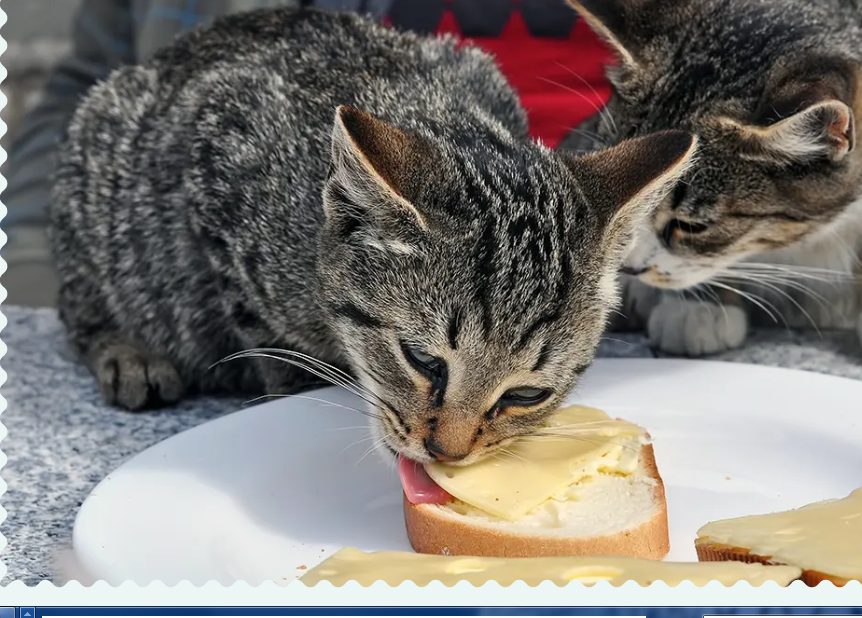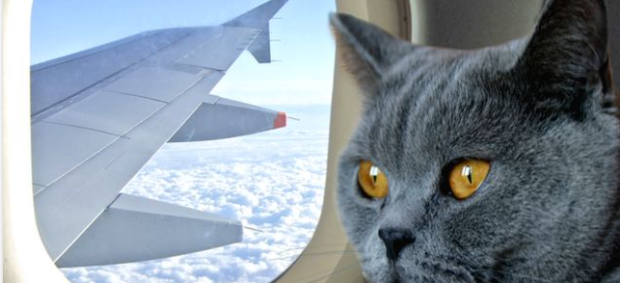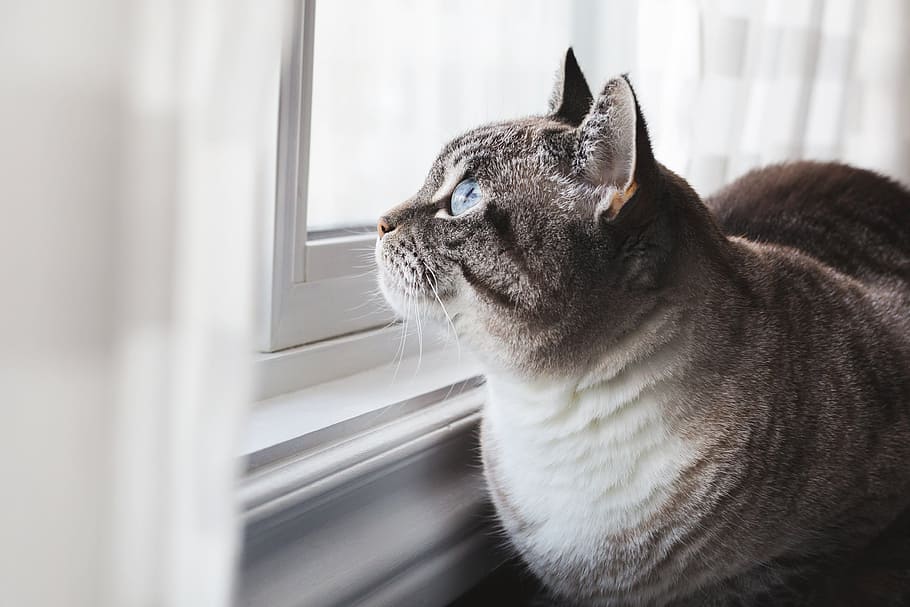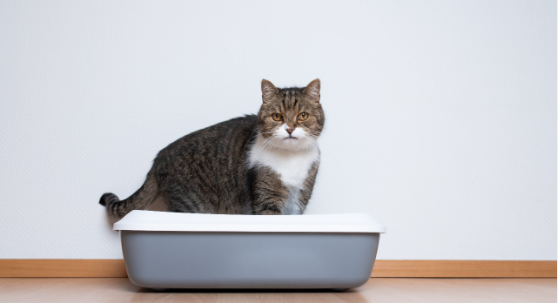Can cats have cheese?
As a cat owner, you may have been tempted to give your furry friend a taste of the cheese that you are enjoying. You may be wondering if cats can eat cheese or if is it just another human food that they cannot digest properly.
Cheese is a popular human snack, and it is no surprise that some pet owners would like to share their treats with their pets. It is essential to know whether cats can have cheese as it has an impact on their health and well-being.
There are many foods that humans can enjoy but are harmful to pets, and cheese could be one of them. It’s important to understand what cats need in terms of nutrition and whether cheese provides any benefits for them.
A brief overview of the topic
The topic of discussion in this article is whether or not cats can eat cheese. Cheese is a dairy product made from milk, and as we all know, cats are lactose intolerant.
However, there might be some types of cheese that they can consume without any adverse side effects. This article will explore the nutritional needs of cats and the nutritional value of different types of cheeses for humans.
We will discuss whether or not cats can eat cheese safely and what kinds of cheeses are safe for them to consume in moderation. Additionally, we will examine the benefits and risks associated with feeding cheese to your cat and how often you should feed it to them.
Importance of discussing if cats can have cheese
It’s critical for pet owners to be informed about what they feed their pets as it directly impacts their health and longevity. Cats require specific nutrients in specific amounts for healthy growth, development, and maintenance throughout their lives. Feeding your cat foods that are not suitable for its dietary requirements could lead to health problems ranging from intestinal upset to nutrient deficiencies or even obesity.
Therefore, knowing what food items are safe for your cats and in what quantities is crucial. In this article, we will explore whether cheese is safe for cats and how much of it can be consumed without any adverse effects on your feline friend’s health.
Can cats have cheese?:The Nutritional Needs of Cats
Cats are obligate carnivores, which means they require a diet that consists primarily of animal protein to meet their nutritional needs. Unlike humans and some other animals, cats cannot synthesize certain essential nutrients such as taurine, arginine, and niacin. Therefore, it is crucial for cat owners to ensure that their pets receive adequate amounts of these nutrients in their diet.
In addition to protein, cats also require a specific balance of fats and carbohydrates to maintain optimal health. Fats are an important source of energy for cats and help them absorb certain vitamins.
Carbohydrates provide additional energy and fiber in the diet. However, unlike dogs or humans, cats do not require carbohydrates in large amounts as they are not well-equipped to digest plant-based foods.
Importance of a Balanced Diet For Cats
A balanced diet is essential for maintaining your cat’s overall health and well-being. A lack of essential nutrients can lead to a range of health issues such as skin disorders, gastrointestinal problems, urinary tract infections, liver disease, and even death.
Feeding your cat a high-quality commercial cat food that is specifically formulated to meet their nutritional needs is usually sufficient to maintain a balanced diet. It is important to check the label for ingredients such as taurine and meat-derived proteins like chicken or fish meal rather than plant-based proteins like soy or corn gluten meal.
In addition to feeding your cat high-quality commercial food products, you may also consider supplementing their diet with fresh meats or specially formulated veterinary diets if recommended by your veterinarian. However, it is important never to feed your cat human foods that contain ingredients toxic or harmful to felines like chocolate or garlic powder.
Cheese and Its Nutritional Value
Cheese is a dairy product made from milk and has been consumed by humans for thousands of years. It is a versatile ingredient in many cuisines worldwide, used in dishes ranging from pizza to sandwiches.
Cheese is also considered a good source of nutrition for humans, as it contains high amounts of protein, calcium, vitamin A, and vitamin B12. However, when it comes to cats, cheese may not be the most nutritious food option.
While it does contain some nutrients that are essential for feline health such as protein and calcium, cheese also contains high amounts of fat and sodium. This can be dangerous for cats because they have different nutritional needs than humans.
Overview of Cheese and its nutritional value for Humans
Cheese is generally considered a healthy food option for humans because it provides several essential nutrients such as protein, calcium, vitamin A, and Vitamin B12. The exact content varies depending on the type of cheese but generally speaking, all cheeses contain high amounts of fat which makes them an energy-dense food source.
The high-fat content can provide much-needed calories for individuals with malabsorption disorders or those who are trying to gain weight. Cheese also contains sodium which helps regulate fluid balance in the body.
Comparison between human and feline nutritional needs
Felines have different nutritional requirements than humans because they are obligate carnivores – meaning that their diet should primarily consist of animal-based protein sources rather than plant-based ones. A cat’s diet should contain adequate levels of taurine which is only found in animal products like meat or fish. Additionally, cats require a balanced ratio of essential fatty acids such as omega-6 and omega-3 fatty acids that can only be obtained through their diet.
Too much or too little of either can lead to health problems. Therefore, while cheese may be a good source of certain nutrients for humans, it may not be a suitable option for cats as it does not meet their unique nutritional needs.
Can Cats have Cheese?
Cheese is a product derived from milk, which means it contains lactose, a type of sugar that many cats are intolerant to. Lactose intolerance in cats can cause digestive issues such as diarrhea and vomiting. Therefore, it is essential to consider the potential risks before feeding cheese to your feline friend.
While cheese might not be toxic to cats, it should not replace their regular diet of high-quality cat food. Cheese is relatively high in fat and calories compared to other cat-friendly food items.
Overconsumption of cheese can lead to weight gain and other health problems such as pancreatitis. Additionally, some types of cheese contain high levels of sodium, which can also be harmful if consumed excessively by your cat.
Factors to Consider When Feeding Cheese To Cats
When considering whether or not to feed your cat with cheese, you need to keep in mind certain factors that may affect your cat’s health. Firstly, you need to determine whether your cat has any underlying allergies or sensitivities that could lead to adverse reactions after consuming cheese.
Some cats may develop an allergic reaction after consuming dairy products such as cheese. Additionally, you should consider the age and overall health status of your cat when deciding whether or not they can eat cheese safely.
Older cats with pre-existing medical conditions may have a harder time digesting complex foods like cheese than younger and healthier cats. Another factor worth considering is the amount of cheese you intend on feeding your pet.
If your furry friend loves the taste of cheddar or mozzarella but has frequent digestive upsets after eating them, try limiting their intake amounts or opting for low-fat cheeses like cottage or ricotta cheeses instead. Overall, while it’s okay for cats occasionally enjoy small amounts of certain types of cheeses as treats, feeding them too much could be harmful due to its high-fat content and potential lactose intolerance.
Types of Cheese that are Safe for Cats to Eat
The Safer Cheeses for Cats to Eat
While cats can eat some types of cheese, not all cheese is safe or appropriate for feline consumption. The most important consideration when choosing a cheese for your cat is ensuring that it is low in fat and salt content.
Also, it’s essential to note that cats are lactose intolerant animals, so they cannot consume high amounts of dairy products as humans do. Cheeses such as cheddar, Swiss, brie, feta, and mozzarella are considered relatively safe for cats if fed in moderation.
These cheeses contain less lactose than other options and can be a good source of protein for your cat. However, it’s crucial to remember that cats should only be given small amounts of cheese as an occasional treat rather than a regular part of their diet.
Why Certain Types Are Safer than Others
Cheeses like blue cheese or Roquefort contain higher levels of fat and salt which can lead to health problems such as obesity or high blood pressure in cats if consumed regularly. Additionally, these cheeses may contain mold which can be harmful to felines’ respiratory systems and cause digestive issues. Soft cheeses such as cream cheese should also be avoided since they have a much higher lactose content.
Even though your cat might love the taste of these cheeses on their paws or whiskers, it’s important to limit their intake or avoid them altogether. Feeding inappropriate types of cheese regularly could lead to severe health problems in the long term.
The Benefits and Risks Of Feeding Cheese To Cats
Pros of Feeding Cheese to Cats
Feeding your feline friend with cheese has some potential benefits. One benefit is that it increases the variety of food in their diet, which can help prevent them from getting bored with their meals.
Another advantage of feeding cheese to cats is that it can be a good source of protein, calcium, and other essential nutrients. Cheese also contains amino acids that are beneficial for cats’ health.
These amino acids contribute to healthy muscle growth and development, as well as support the immune system. In small amounts, cheese can be a delicious treat for your cat and may even help promote bonding between you and your feline companion.
Cons of Feeding Cheese to Cats
Despite its potential benefits, there are also some risks associated with feeding cheese to cats. One significant risk is that many cats are lactose intolerant or have trouble digesting dairy products.
Too much cheese can lead to digestive issues such as diarrhea or vomiting. Another potential risk of feeding cheese to cats is its high-fat content.
Fatty foods can cause obesity in cats if consumed in large amounts over time. Obesity in cats can lead to health problems such as diabetes, heart disease, and joint pain.
How Much Cheese Is Safe for Cats?
If you choose to feed your cat cheese, it’s essential to do so in moderation. The amount should not exceed 10% of their daily caloric intake.
The recommended serving size depends on the type of cheese being fed but should generally be no more than a small piece or two per day. It’s crucial also to monitor how your cat reacts after eating cheese carefully.
If you notice any signs of digestive distress or any other unusual symptoms after feeding them with cheese, stop immediately and consult your veterinarian. Cheese can be a tasty treat for your cat but should only be fed in moderation.
Cheese contains some essential nutrients that can benefit your cat’s health, but it also has potential risks associated with it. Always consult with your veterinarian before introducing new food to your cat’s diet.
How To Feed Cheese To Your Cat Safely
Feeding cheese to your feline friend can be a great way to treat them, but it’s important to do so safely. Firstly, it’s vital that you only give your cat a small amount of cheese.
While some cheeses are perfectly safe for cats, others may cause digestive issues if consumed in large quantities. Start with a small quantity of cheese and monitor your cat’s reaction before deciding whether or not to give them more.
It is best to feed your cat cheese as an occasional treat rather than as part of their regular diet. Just like humans, cats need a balanced and varied diet in order to maintain their health.
Feeding too much cheese can lead to obesity and other health problems such as diabetes or heart disease. Therefore, it’s important not to use cheese as a replacement for more nutritious foods that are specifically designed for cats.
Tips on how to safely feed cheese to your cat
If you have decided that you want to feed your cat cheese, there are some tips you should follow in order to do so safely: 1) Choose low-fat cheeses: Cheeses that are high in fat should be avoided since they can irritate the digestive system of cats and cause pancreatitis.
2) Avoid feeding flavored cheeses: Flavored cheeses often contain additional ingredients like garlic or onions which can be toxic for cats. 3) Monitor portion sizes: Cheese should never make up more than 10% of the total daily calorie intake for your cat.
4) Introduce slowly: If you’ve never fed your cat cheese before, introduce it gradually over several days in small amounts. 5) Consult with a veterinarian: If you’re unsure about whether or not it’s safe to feed your specific breed of cat with certain types of cheeses or any amount at all, consult with a veterinarian first.
Discussion on how often should you feed your cat with cheese
As previously mentioned, cheese should only be given as a treat and not as a regular part of your cat’s diet. Experts recommend that cheese should never make up more than 10% of the total calorie intake for your cat. Additionally, it’s important to remember that cats have different nutritional needs depending on their age, weight, and activity level.
Therefore, it’s best to check with your veterinarian before making any changes to your cat’s diet. The frequency with which you feed cheese to your cat will also depend on their individual preferences and tolerance for dairy products.
Some cats may show no adverse reactions to small amounts of cheese while others may experience digestive discomfort or allergic reactions even with the smallest amount. It is recommended that you only give cheese to your cat once or twice a week at most, especially if they’ve had issues digesting dairy products in the past.
Conclusion
After analyzing the nutritional needs of cats and the nutritional value of cheese, it is clear that cats can have cheese in moderation. However, there are certain considerations to keep in mind when feeding cheese to your feline friend.
Cats are obligate carnivores and require a balanced diet to live a healthy life. While cheese may be a tasty treat for them, it should not replace their regular meals.
Cheese can provide some nutritional benefits for cats, such as protein and calcium. However, it is important to note that not all types of cheese are safe for cats to consume.
Soft and highly processed cheeses should be avoided due to their high lactose content which can cause digestive issues in cats. Hard cheeses such as cheddar and parmesan are safer options but should still be fed in moderation.
While it is safe for cats to eat cheese in moderation, pet owners need to be cautious about the type of cheese they feed their feline friends. Providing a balanced diet consisting mainly of protein-rich meat products is essential for maintaining their health.
Cheese can be given as an occasional treat or as part of a balanced diet plan with the guidance of a veterinarian. Remember that every cat is different and may have unique dietary needs or allergies, so always consult with your veterinarian before introducing any new food into your cat’s diet.




